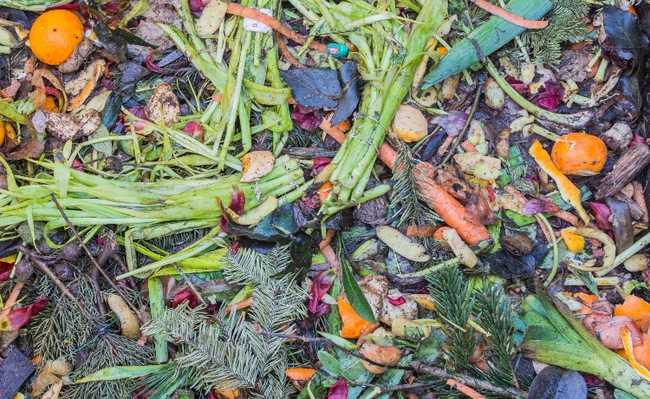Value your diet with 18 simple and realistic tips for a healthier daily life

Several options for a more balanced and healthier life in your daily life
The rush of everyday life demands great energy and concentration from people. Many are worn out throughout the day and leave their health aside to resolve other things. Due to the rush, sometimes the option for the exaggerated imbalance of self services or even quick snacks, the fast food scheme, we compromise our health. Even under such pressures, it is possible to balance chores and care for the body. If you think you are eating poorly or failing to hydrate yourself, enjoy and follow here some tips that can spice up your daily life with healthier habits, whether on breaks from work or when at home.
Prefer shaped breads that contain grains - By doing this you will ingest much more nutrients than a traditional bread. Grain-based diets contribute to weight and balance with your body, reducing the risk of cardiovascular disease, type 2 diabetes, obesity and some forms of cancer. In addition to helping to regulate the digestive process due to the fiber contained in grains, it also helps to reduce LDL cholesterol levels.
Water is never too much – If water covers about 70% of the planet's surface and corresponds to a similar percentage in the composition of our body, its fundamental aspect for life, in our case, human, is conclusive. According to studies done by Elisângela Werner and Monica Franken on the consumption of water by humans, an individual can go up to 28 days without eating and still manage to survive, on the other hand, more than 3 days without drinking water will mean death from dehydration. That's why we should be concerned about the amount of water ingested and, if possible, not allow ourselves to be dehydrated. To assess whether you are dehydrated, just look at the color of your urine. In cases where a lighter tone prevails, in the sense of transparency, it will mean that the hydration conditions are adequate. Darker or yellowish appearance may mean the need for increased water consumption, as your condition is possibly dehydration. The human body eliminates water throughout the day through breathing, sweating and urine and for replacement it would be recommended to ingest approximately 2 liters of water per day, at regular intervals. In other words, take the opportunity to drink more water than you already drink.
Drink in moderation - Alcoholic beverages are consumed on a large scale around the world, in the most varied occasions. Whether at parties, gatherings of friends or family, there are always good reasons. The issue does not lie in the simple act of drinking, but in how much is ingested by the person, because depending on the amount of alcohol in the body, it can take a long time to detoxify the body, which can contribute to psychiatric, neurological, cardiovascular or even cancer. Another adversity of beverages is the number of calories they contain. A glass of rum with coca cola, better known as cuba-libre, for example, contains about 170 calories. Therefore, leading a healthy life does not seem compatible with excessive alcohol consumption. Drinking moderately is the way. Anyway, some tips related to the consumption of these substances can be interesting. Before drinking alcohol, have a moderate meal. It forms a protective layer in the stomach and will contribute to the digestion of food in parallel with alcohol, making its absorption by the body slower. Alternate alcoholic beverages and water, which will contribute to the dilution of alcoholic beverage components, avoiding dehydration. Don't mix different types of beverages, such as fermented (beer and wine) and spirits (whiskey and vodka), as your body may reject the mixture. The next day, consume fruits and juices, fructose will help the body to get rid of alcohol.
Use less oil to cook and sauté less – For a healthier life and less polluted rivers, cut down on oil when cooking so you cut extra calories and fat from your daily intake. And by sauteing foods less, you can stay away from oil and the problems it causes.
Participate in the Second Without Meat – Campaign that, according to the official website: “it proposes to make people aware of the impacts that the use of meat for food has on the environment, human health and animals, inviting them to take the dish meat at least once a week and discovering new flavors”. Reducing meat consumption reduces its water footprint (according to Water Footprint, to produce a kilo of beef, around 15,000 liters of water are needed) and its carbon footprint, also contributing to the reduction of greenhouse gas emissions produced by the cattle in the process of their creation. When considering the impacts of meat consumption directly on your body, reducing it means lower risks of contracting cancer, heart disease, diabetes, obesity, which contributes to longevity. See more about being a vegetarian at least once a week.
Cook more at home – Take the opportunity to test your cooking skills and refine your practices in the preparation of healthier and preferred foods. According to USA TODAY, a person who prefers to eat at a restaurant consumes 50% more calories, fat and sodium than a person who chooses to cook at home.
Give preference to local products and markets – Try to remove frozen foods from your routine. Prefer organic products and favor markets that sell products whose origin is as close as possible to you, which will reduce your carbon footprint by preventing foodstuffs from traveling very long distances to reach your home. In this way you also contribute to the development of the local economy. These practices will possibly give you the opportunity to consume fresher and more nutritious foods.
If you want to go on a diet, do not exaggerate the dose - In order to lead a healthier life it is sometimes necessary to give up some food options and that is why we consider the practice of diets. However, there is some confusion related to the concept of diet, sometimes interpreted as exaggerated dietary restrictions or even the exclusive intake of salads and vegetables. It may seem that this will solve the problem, but in fact our bodies also need carbohydrates (pasta), proteins (meat), fiber, vitamins (fruits), minerals and lipids (fats). Therefore, if the diet is not able to balance all these nutrients, it can lead to disastrous health effects.
Don't skip breakfast - Someone very experienced may have told you: "Breakfast is the most important meal of the day". It makes perfect sense, since several researches prove this statement and show that those who eat this meal are healthier and more physically active. It has also been proven that those who have lunch as their first meal of the day exaggerate their fat and calories to the detriment of their health. So, think twice when you "skip" breakfast.
Replace the soda with juice or tea - Try replacing the soda with juice or tea. Your body will thank you. Even if the soda is diet, think of other alternatives. If complete elimination is not possible, reduce consumption and prevent diseases such as obesity and diabetes. Healthier still if you can increase the consumption of natural juices and mate tea, which are very good for your health.
Opt for healthier snacks - Make your own snacks with healthier ingredients instead of buying from snack bars and for that basic dinner, how about reusing potato, onion, carrot peels, as well as leeks and other vegetables to taste to make a nice soup? Parsley and chives also go well in this broth.
Try New Fruits and Vegetables - Make a list of the fruits and vegetables you've never eaten, enjoy the ones that are prime season, and see if you like them. Some exotic and rare fruits are nutritious, good for health and you'll even expand your repertoire of taste buds.
Less coffee - That coffee in the afternoon or in the morning to wake up, it doesn't matter. The problem is when that coffee becomes your companion for the day and at the end of it you've lost count of how many you've had. According to the Mayo Clinic, if you drink more than four cups of coffee a day, caffeine can cause side effects such as insomnia, nervousness, restlessness, irritability, rapid heart rate, muscle tremors, and upset stomach.
Choose foods that improve your mood - Healthy living and a good mood have always gone together and now you can stimulate both through your food. This is possible due to the following sources: omega 3, vitamin B1 or thiamine which can be found in pistachios, cashew nuts, soybeans, flaxseed. In addition to vitamin B12, found in fish, milk, eggs and tryptophan in peanuts and bananas. But the best tip to combine mood with health is to eat fish once or twice a week, as these four sources can be found in this foodstuff.
Make colorful dishes - The more colors your diet offers, the more nutrients you'll be consuming. Make color a priority when shopping and cooking.
Sports, always - Physical activity in the human being's routine is of fundamental importance for those who intend to live for a long time, in a healthy way. There are several benefits of physical activity, improving self-esteem, flexibility, reducing the risk of heart disease, colon cancer, preventing strokes and type 2 diabetes, reducing depression and anxiety, controlling blood pressure, among other advantages.
Relax your mind - Living in a big city and having to face your daily problems is exhausting. Those who live with this accumulate stress, fatigue and anxiety. To combat them, there are ways to relax like walking, listening to music and spending time with friends. They serve to relax the mind and get away from the rush. There are alternatives for the mind such as Yoga and Tai Chi Chuan that work with the exercise of meditation and stretching. Books are also great for this purpose.
Smile - Smile is the best cure for the problems you face. It costs nothing and is very contagious. A delicious addiction.










